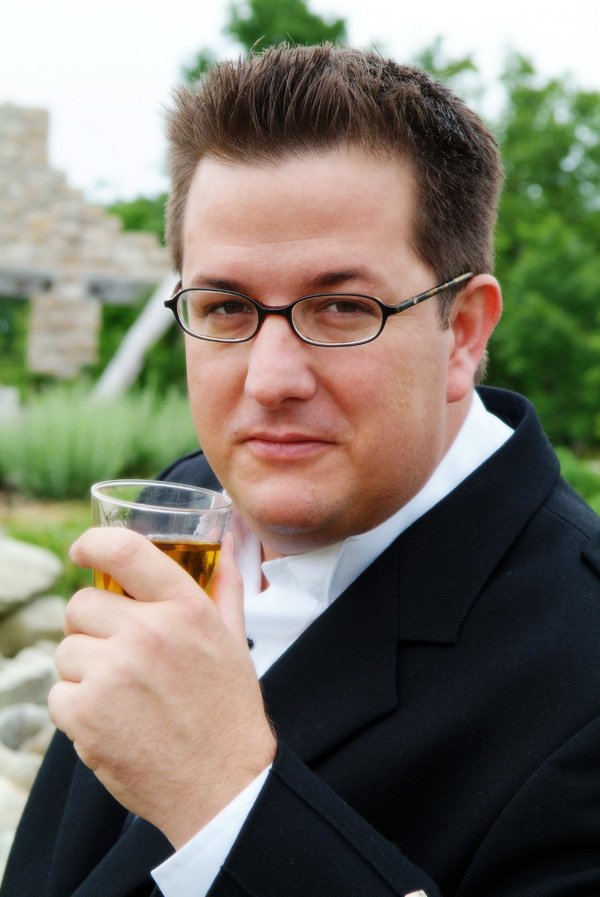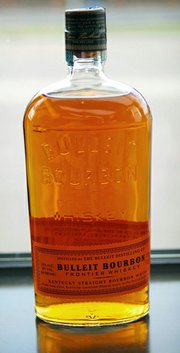FAYETTEVILLE — It’s the business card dreams are made of: Robert Sickler, Master of Whisky.
“Where were YOU during high school career day?!” he quotes, reciting one of the varied responses he gets when people find out his job title. Another popular reaction: “Would you care to switch jobs?”
Sickler is a brand ambassador for the whisky portfolio of Diageo, the largest premium beer, wine and spirits company in the world. The whisky labels it represents include industry giants such as Johnnie Walker, Bushmills and Crown Royal, a Canadian whisky that will star in the whisky tasting event Sickler will host on Tuesday at the Walton Arts Center.
That’s part of the job description for a master of whisky: traveling around the country (and globe) educating people on the finer points of the spirit and in so doing creating new whisky enthusiasts “one dram at a time.”
It’s a pretty great job, Sickler admits.
Especially since he loves whisky so much.
“As far as complexity goes, nothing compares,” he says of his hands-down favorite spirit. “Nothing comes close.”
Many people aren’t aware that “whisky packs so many different aromas and flavors,” he says. Sensory chemists have identified 460 aromas in Scotch whisky alone, he says, and tasters have detected everything from butterscotch to toasted nuts to lemon zest to tobacco. “The flavors are very drastic and across the board.”
All kinds of variables impact those flavors, he says, from the mash recipe to the size and shape of the stills to the length of fermentation and distillation to the type of wood barrels the whisky is aged in. “And the place itself has a big, big role in the flavor of whisky,” he says.
He gears into scholar mode, the 10 years he spent teaching English prior to becoming a master of whisky evident in his patient delivery.
He starts to explain how a taster might detect a flavor as seemingly off the wall as smoked fish: In the coastal distilleries of Scotland … sea salt maritime weather … as the whisky rests in breathing barrels … hint of seaweed … reminiscent of fish … Meanwhile nearanother distillery, the locals are digging up peat … peat smoke in the air … a taste that reminds someone of a bonfire at the beach …
His own fascination andenthusiasm are apparent - and catching.
Some of the aspects of whisky can be scientifically assessed and re-created, he says, while others cannot.
“Whisky really is a mingling of art and science.”
And in the six years he’s been a brand ambassador for Diageo’s whiskies - training and apprenticing at distilleries around the world, meeting the men and women whose families have been making whisky for centuries, visiting the local pubs and absorbing the cultural relevance - he’s only grown to love it more.
“The more I learn, the more I appreciate it,” he says, the more he’s able to break down the flavors “and really savor and cherish the liquidfor what it really is.”
Tuesday’s event in Fayetteville will be a good place for others to start exploring the world of whisky, he says. Participants will sample and learn about North American whiskies from the Crown Royal and Bulleit Bourbon brands.
“North American whisky tends to be sweeter and tends to be very accommodating to newcomers to the category as well as established whisky connoisseurs,” he says.
The event will start at 7 p.m. in the arts center’s Starr Theater. The cost is $50. For more information or tickets, visit www.waltonartscenter.org. or call 443-5600.
FAQ
A WHISKY TASTING
WHEN - 7 p.m. Tuesday
WHERE - Walton Arts Center in Fayetteville
COST - $50
INFO - 443-5600
***
FYI
To “E” Or Not To “E”: Whisky or Whiskey
◊Whisky produced in Scotland is spelled without an “e.” In Scotland, it’s simply called whisky, while elsewhere it’s referred to as Scotch whisky or Scotch.
◊Irish and American producers usually spell their product’s name with the “e ” - whiskey - although a few prominent American labels spell it without the “e.”
◊Canadians spell their spirit whisky.
◊Bourbon is a type of American whiskey made from at least 51 percent corn. The bourbon produced in Tennessee is typically called Tennessee whiskey.
◊The spelling isn’t written in stone, says Master of Whisky Robert Sickler. “It’s more important - and fun - to concentrate on the aroma, taste and finish of the liquid than its spelling.”
Whats Up, Pages 11 on 02/18/2011


